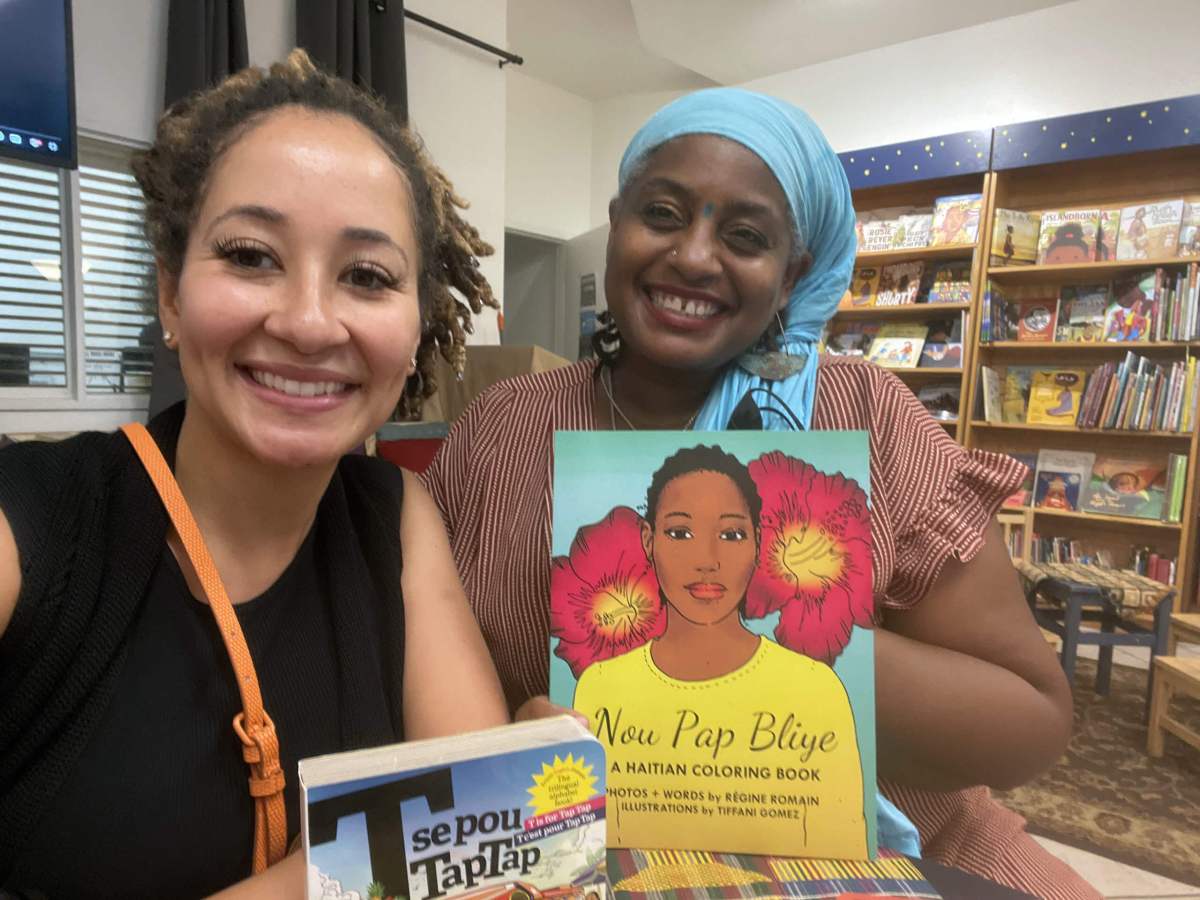Lyrica Fils-Aimé and Régine Romain, two racial equity activists and emerging authors are sharing their love of Haiti via their “Brooklyn Loves Haiti – Booth #534” at this year’s Brooklyn Book Festival Marketplace on Oct. 2 at Brooklyn Borough Hall.
The multilingual books “T se pou Tap Tap” and “Nou Pap Bliye: A Haitian Coloring Book” are firsts for both women.
They told Caribbean Life that their books provide “a Kreyòl-infused journey through their vivid memories and imaginings as daughters of Haiti’s vast Diaspora.”
Fils-Aimé, LCSW-R, RPT-S, was born in Haiti to a Haitian father and a white Kreyòl-speaking mother.
As a mixed-race child, she said she grew up reading a few children’s books with Black characters, but she did not have any books about her birth country, Haiti.
As a director of Equity Transformation and Culturally Responsive Environments for the NYC DoE and mental health therapist, Fils-Aimé said she decided to change that.
“I had books with Black characters in them, but never any with Haitian characters or any with Kreyòl language,” she said. “As a social worker and educator, I understand the significance of new narratives embracing ancestral connections and wisdom. T Se Pou TapTap (T is for Tap Tap) is for all the children who need to see themselves, their culture and languages in books, too,”
Romain, artist, educator and visual anthropologist, agrees, stating that, while growing up as the daughter of Haitian immigrants, she did not have any representation of Haitian authors or characters either.
“I created Nou Pap Bliye: A Haitian Coloring Book because of my deep love and pride in/for Ayiti (Haiti),” she said. “I invite all ages to come ready and able to color in love and hope for Haiti.”
Romain’s first book features illustrated images of Haiti she captured three weeks after the catastrophic 7.0 Mw earthquake that occurred in Haiti on Tuesday, Jan. 12, 2010.
Rather than continue to emphasize the images of loss and devastation inundating international media following the tragedy, she said her photographs emphasize the elements of faith, dignity, honor and respect that allowed Haitian communities to survive and move forward.
Included in the book is an original poem Romain wrote while in Haiti post-earthquake.
In her efforts to reach a broad audience with this empowering message of Haiti, Romain had the poem translated into multiple languages, which include Haitian Kreyòl, English, Twi (Ghana), Spanish, Ibo (Nigeria) and French.
Fils-Aimé and Romain said they offer their respective books as “tools supporting culturally responsive education while broadening the literary landscape with stories about Haiti written by Haitians.”
For more information, please contact Lyrica Fils-Aimé at 347-395-1497 and ldfilsaime@gmail.com, or go to www.lyricafilsaime.com and IG @haitian.stories; and Régine Romain at 347-669-1791 and theartist@regineromain.com, or go to www.RegineRomain.com and IG @regineromain.

























